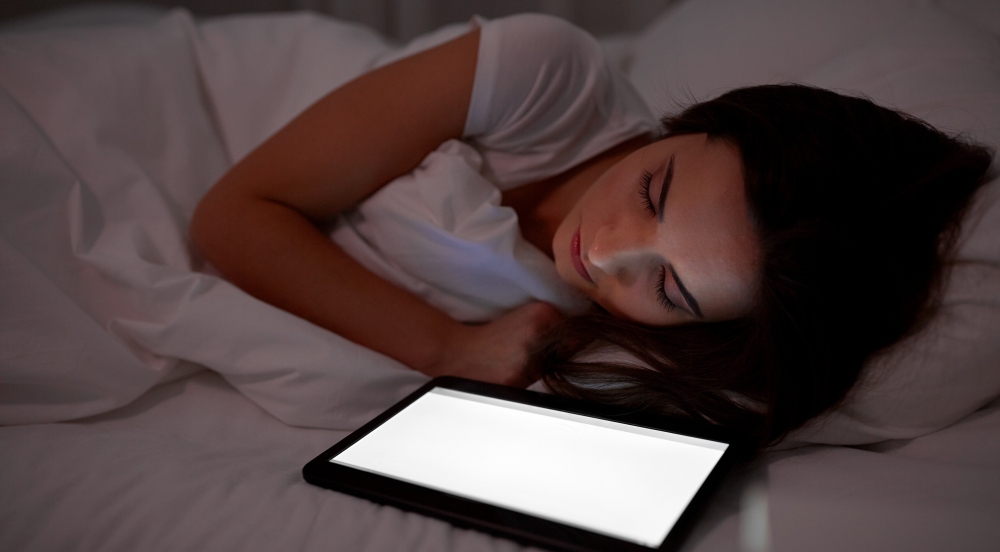
Although technology has made our lives easier to a great extent, it can be detrimental to your health if not used right. One of the health factors affected by the use of technology at the wrong time is the quality of sleep, which can adversely impact your productivity at work and in your daily life as well. While some people use weighted blankets to help improve their overall sleep quality, and you can find one in top-notch quality at Mela, it’s still important to consider other factors that affect your sleep and health.
Why Is Sleep Important?
It’s usually recommended to get around 7 to 9 hours of sound sleep every night to ensure your wellbeing and if you aren’t able to sleep properly, it can slowly lead to many health problems.
Your brain functions will be affected adversely and will lead to memory and decision-making problems. You will also feel groggy, lethargic, and moody during the entire day which can lead to mental issues like depression and anxiety as well.
Your immune system may also not function properly due to lack of sleep which will make you more susceptible to infections and diseases.
How Does Technology Affect Sleep?
One of the common reasons for poor-quality sleep or sleep deprivation is also the use of technology right before going to bed or during the late hours in the evening. Many people don’t even realize that it has become a part of their routine to use their phones, tablets, or laptops before dozing off.
Everyone’s body regulates itself according to the light conditions present during the entire day. This is the reason why it produces a high amount of a hormone called cortisol to keep us active and energetic during the day, whereas by the nighttime it starts releasing a sleep hormone known as melatonin.
This sleep hormone production can be delayed when exposed to electronic devices like computers, laptops, TV, tablet, and cell phone as they emit blue light which has a short wavelength and interferes with our body’s sleep-wake cycle.
The use of technology can affect the production of melatonin in your body during the night, and you will face trouble falling asleep. It can lead to insomnia or even poor sleep and may give rise to several health conditions mentioned above.
Everyone’s body functions differently and although some people may not feel these effects, they may still be distracted by the use of technology. They may either get too excited watching a new Netflix season and may want to finish it all in a go, or may want to play their favorite action game for just “one more hour”. This can lead to extra distractions and affect their bedtime routine as well, which may turn into a strong habit over time.
Impact of Technology on Children
Adults are less sensitive to blue light as compared to children, who are more vulnerable to it. It means the negative effects of blue light in children are more severe than those of adults, and this can interfere with their proper physical development.
Lack of sleep in children can also cause them to have poor grades in school due to low concentration and even change in their behaviors. It can impact their vision as well at an early age.
Tips for Using Technology at Night
It is usually recommended by experts that individuals should stop using blue light-emitting devices such as smartphones, laptops, and tablets when the evening is approaching, whereas, 1.5 hours before going to sleep should be a must. Although this is not quite possible for some people to completely omit using these devices, you can implement the following tips to limit the use of technology at night for a good night’s sleep.
Invest in blue-light-blocking glasses. If you must respond to an important email or work on a presentation the night before, you should consider investing in blue-light-blocking glasses, as they are specially coated to filter out blue light and make your exposure minimal to it.
Keep your electronic gadgets away from the bed. Keeping your electronic devices at an arm’s length will make it even more convenient for you to give in to the temptation of using them right before bed. You should keep all of your devices away from the bed and replace your phone with an actual alarm clock to keep any kind of distractions at bay.
Use night mode or apps. When using your phone or tablet at nighttime, you should switch it to night mode as it will make the light dim. Whereas, for laptops and computers, you can consider installing certain apps that automatically adjust the brightness of your screen to prevent your eyes from straining.
Dim the lights in your room. The lights in your room can also emit some amount of blue light, therefore, dimming them by evening can allow your body to prepare itself for a good night’s sleep.
